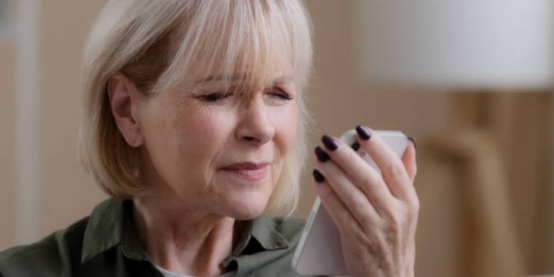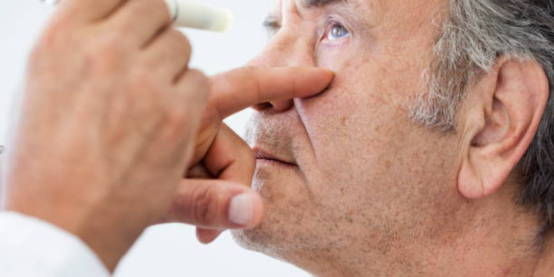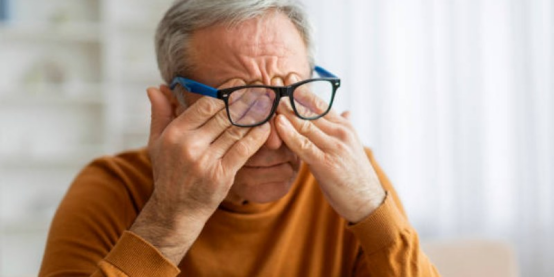Eye Health: Common Senior Vision Problems
Eyes change with age. Everyone knows that wrinkles come with getting older, but many are unaware of how age also affects eyesight. Good eye health is essential for seniors who want to maintain a high quality of life and remain independent. Some vision problems are usual as people age, but others should never be ignored.
Age-Related Macular Degeneration (AMD)
One of the most common eye conditions affecting older individuals is Age-Related Macular Degeneration (AMD). This eye disease affects the macula, which is the part of the eye needed for clear central vision. People with AMD may experience difficulty reading, driving, or recognising faces. AMD does not usually cause total blindness, but it can make daily life harder.

There are two main types of AMD: dry and wet. Dry AMD is more common and happens when parts of the macula get thinner with age. Wet AMD is more serious and can lead to faster vision loss. Early signs include blurry areas in the centre of the vision or straight lines that appear wavy. Seniors who notice these signs should consult an eye doctor immediately. According to the American Academy of Ophthalmology, regular eye checks can help find AMD early.
Cataracts
Cataracts are another common vision problem for seniors. Cataracts cause the lens of the eye to become cloudy. This can cause blurry vision, faded colours, or trouble seeing at night. Cataracts develop slowly and can happen in one or both eyes. Many people over age 60 have some level of cataract.
The good news is that cataracts can be removed through safe surgery. Doctors replace the cloudy lens with a clear artificial one. This surgery is one of the most frequently performed procedures worldwide. Wearing sunglasses and avoiding smoking may help slow the formation of cataracts.
Glaucoma
Glaucoma is another problem to watch out for. This disease damages the optic nerve, which connects the eye to the brain. Glaucoma often happens when pressure builds up in the eye. If left untreated, it can lead to permanent blindness.
Glaucoma is challenging because it often has no early signs. Many people are unaware they have it until they begin to lose their peripheral vision. This is why seniors should get regular eye exams that check eye pressure. Treatment may include prescription eye drops, laser treatment, or surgery to lower eye pressure. The National Eye Institute offers good resources for learning more about this condition.

Diabetic Retinopathy
Diabetes can cause serious eye problems, too. Diabetic retinopathy happens when high blood sugar damages blood vessels in the retina. The retina is the back part of the eye that senses light. This condition can cause blurry vision, dark spots, and even blindness if left untreated.
Individuals with diabetes should effectively manage their blood sugar levels and undergo regular eye exams. Early treatment can slow down vision loss. Laser therapy and surgery may help in severe cases. The Centres for Disease Control and Prevention share tips on how people with diabetes can protect their eyesight.
Dry Eyes
Many seniors also suffer from dry eyes. As people age, their eyes may produce insufficient tears or the tears may not function properly. Dry eyes can cause symptoms such as itching, burning, and blurred vision. Looking at screens for a long time, certain medications, or windy weather can exacerbate the condition.
Simple changes can help alleviate dry eyes. Using artificial tears, wearing sunglasses outdoors, and limiting screen time can help. Doctors may also suggest special eye drops or treatments if needed.
Tips to Protect Eye Health
Maintaining eye health in older age does not have to be difficult. Here are some simple steps:
Have regular eye exams, even if you don't have any problems. Early checks help identify issues such as glaucoma or AMD.
Eat healthy foods rich in vitamins A, C, and E. Green vegetables, fish, nuts, and fruits help protect eyesight.
Wear sunglasses that block harmful UV rays.
Stop smoking. Smoking increases the risk of cataracts and AMD.
Control blood sugar and blood pressure, especially for people with diabetes.
Use good lighting when reading or working.
Family members can help seniors keep eye appointments and watch for changes in their eyesight. Vision problems can develop slowly, so it's helpful to pay attention.

When to See an Eye Doctor
Some eye changes are common with age, such as the need for reading glasses. But sudden changes should not be ignored. If you experience sudden loss of vision, flashes of light, double vision, or severe eye pain, see a doctor immediately.
Good vision helps seniors stay safe and maintain their independence. It reduces the risk of falls and assists with activities such as driving and reading. Regular checks and healthy habits go a long way in keeping eyes working well for longer years.